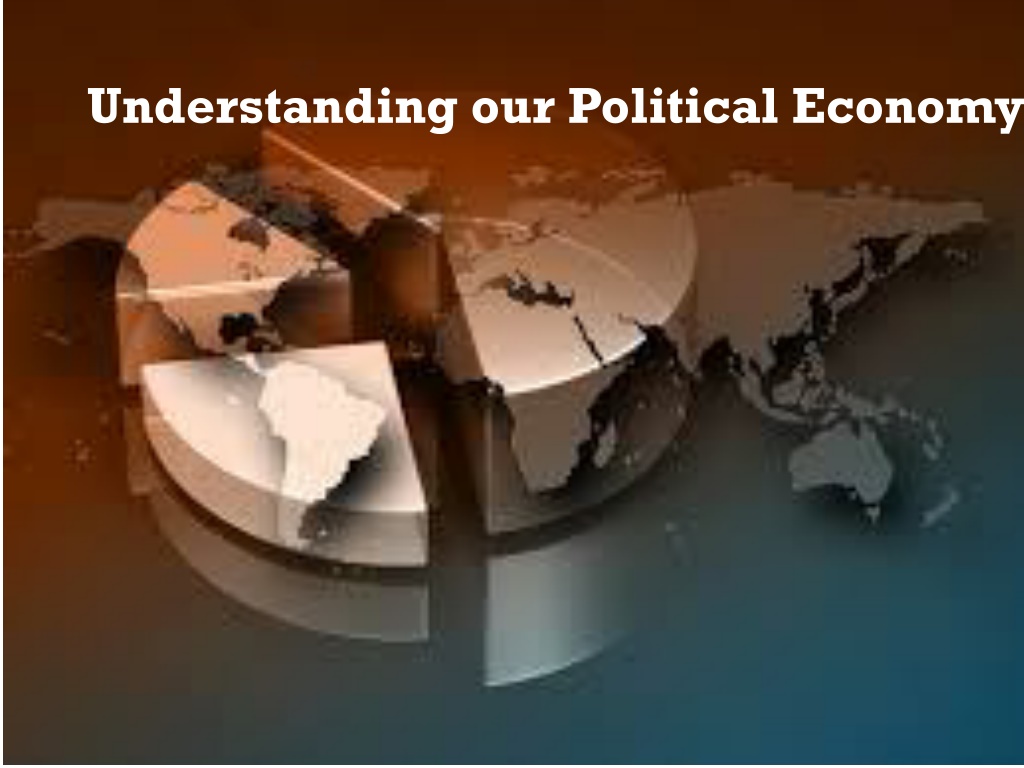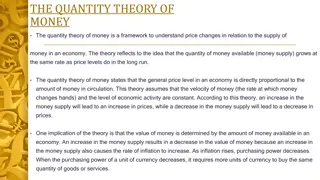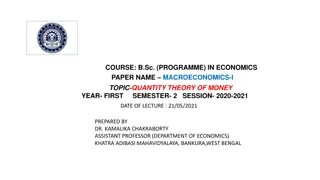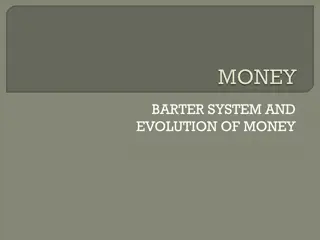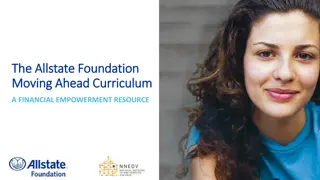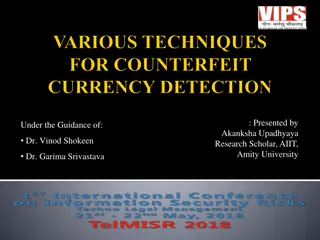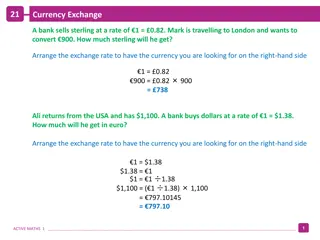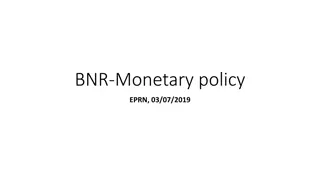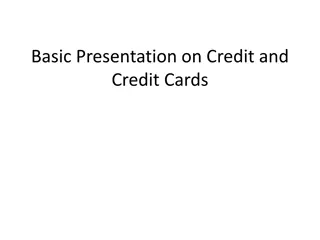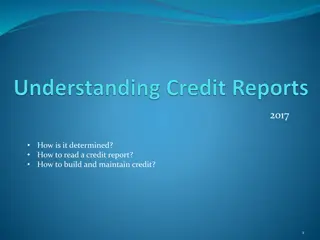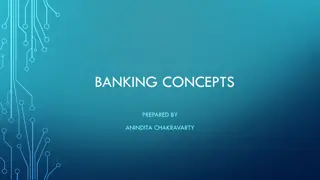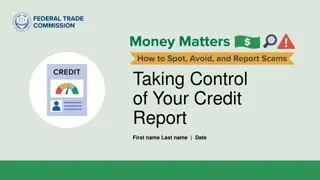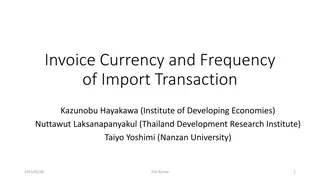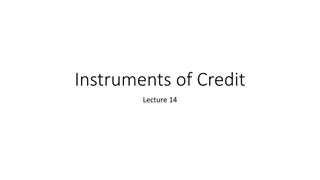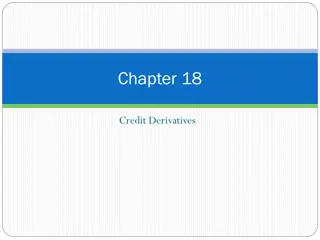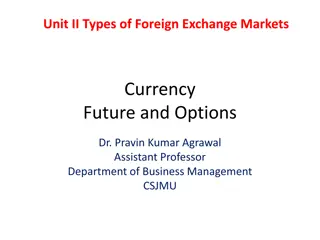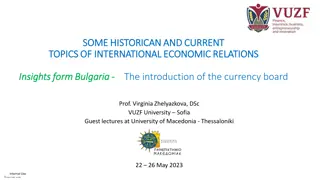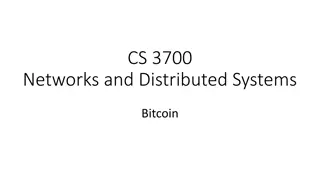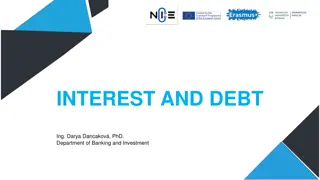Understanding Our Political Economy - Money, Currency, and Credit in the United States
Explore the historical context of the United States' political economy, focusing on the dynamics of money, currency, and credit. Delve into the impact of banking systems, notable figures like Robert Morris and Alan Greenspan, and the effects of the National Banking Acts of 1863 and 1864. Gain insights into the free banking period, challenges faced, and the evolution of banking regulations.
Download Presentation

Please find below an Image/Link to download the presentation.
The content on the website is provided AS IS for your information and personal use only. It may not be sold, licensed, or shared on other websites without obtaining consent from the author. Download presentation by click this link. If you encounter any issues during the download, it is possible that the publisher has removed the file from their server.
E N D
Presentation Transcript
INSTRUCTOR Edward J. Dodson, M.L.A. email contact: edod08034@gmail.com
LECTURE 8 Money, Currency and Credit The United States of America
Portrait engraving of Robert Morris Robert Morris
more recently, some scholars have suggested that the problems of the free banking period were exaggerated. Retrospective analyses have shown, for example, that losses to bank note holders and bank failures were not out of line with other comparable periods in U.S. banking history.
In some states, particularly Michigan Where more than forty banks failed before the system was declared unconstitutional, the system is better characterized as a fiasco than a failure.
National Banking Acts of 1863 and 1864
The number of state-chartered banks fell to just 325
a concentration of the control of credit may at any time become infinitely dangerous to free enterprise.
The Act establishes the most gigantic trust on earth. When the President signs this Bill, the invisible government of the monetary power will be legalized. The greatest crime of the ages is perpetuated by this banking and currency bill.
Since the creation of the Federal Reserve, middle and working-class Americans have been victimized by a boom-and- bust monetary policy. In addition, most Americans have suffered a steadily eroding purchasing power because of the Federal Reserve's inflationary policies. This represents a real, if hidden, tax imposed on the American people.
if protection has slain its thousands, the gold standard has slain its tens of thousands.
Government issued currency Versus Central Bank issued currency Versus Private Bank issued currency
One reason economists have failed mankind so badly is their poor methodology an over-reliance on theoretical reasoning. Alexander Del Mar the world s greatest monetary historian noted: As a rule economists...don t take the trouble to study the history of money; it is much easier to imagine it and to deduce the principles of this imaginary knowledge. "
Nationalize the Federal Reserve System Reconstitute the Fed within the U.S. Treasury, to become a fourth branch of government Restrict the creation of money to the Federal government
The artificial increase in money supply can be halted permanently by implementing free banking. Without a central bank and a national currency imposed on the economy, inflation of the money supply beyond the growth of the economy is no longer feasible, since there is no longer a monopoly of the money supply. From: The Science of Economics, Chapter 12
The Capital Homestead Act's central focus is the democratization of capital (productive) credit. By universalizing citizen access to direct capital ownership through access to interest-free productive credit, it would close the power and opportunity gap between today's haves and have-nots, without taking away property from today's owners.
Mortimer J. Adler Louis Kelso
In the twenty years or more in which I have been developing a theory of democracy as the only perfectly just form of government, I slowly came to realize that political democracy cannot flourish under all economic conditions. ... cap-manifesto
Democracy requires an economic system which supports the political ideals of liberty and equality for all. Men cannot exercise freedom in the political sphere when they are deprived of it in the economic sphere. cap-manifesto
